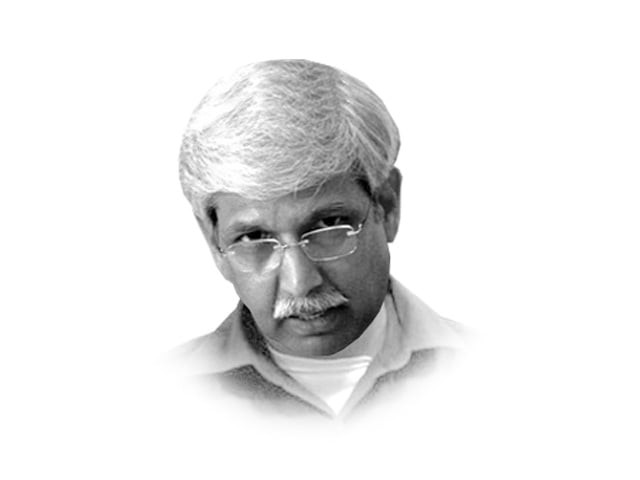Go get the terrorists
OODA stands for, observe, orient, decide, act.

Go get the terrorists
One, an air force officer proffered the concept so, quite conveniently, it doesn’t fall in the realm of applicability for the other branches of the armed forces — not much damage done since the air force, too, remains equally shy of venturing into abstracts. Two, it is abstract in conception and requires that vague formulation to ‘enter an enemy’s mind’ — never mind that till that gets done, one is going nowhere. And yet, without it any application of force, even that used to fight terrorists off, your havens remains a pipe dream.
John Boyd was a USAF fighter pilot and developed the need to index operational success in a competitive environment to ‘time’. His entire theory is based on ‘leading’ an adversary, and never ‘lagging’ behind an adversary. In simple English; anticipate, know your enemy, keep him only in a reactionary mode, never permitting him to lead the time scale by designing events which you can only react to by imposing a war on you of his choice and preference in time and space. Just to appease other readers who think ‘strategy’ is alien, the same OODA loop is now also the bread and butter all management gurus.
John Boyd’s even more prominent student and the architect of America’s air campaign in the 1991 Gulf war; John Warden, developed the concept of paralysis through exploiting Boyd’s OODA loop. This is 21st century warfare, which sadly has not found necessary tracking in our scheme of things. I said earlier, it seems too philosophical, too abstract, and the few that can explain such modern day necessities are, at best, heretical in Pakistan today. Warden thinks if you can lead your adversary in the decision cycle, by imposing a set of events which are unexpected, or beat him in time and space, you force a lag in the adversary’s decision loop. What is this decision loop? OODA stands for, observe, orient, decide, act. Observe what your enemy is up to (pre-empt). Orient your response to the likely enemy action — plan, the choice is yours, either a defence, or a riposte imposing your own set of conditions on him forcing him to react to your parallel move. Decide and then act. The essence here is entering an adversary’s decision loop, disrupting his decision cycle and imposing your own chain of events on him. If an adversary remains tied to only reacting to an imposed set of events on the time scale, he soon reaches the saturation point in his responses and is overwhelmed. That is when he enters the realm of paralysis — the ultimate vindication in a confrontation.
Does the Faisal/Mehran fiasco now begin to make sense? It should. In such warfare, conventional or unconventional, defence is not an option. This is proven by the chain of events that militants or their handlers have rendered onto Pakistan, and proves persistently our inability to regain control of our own OODA loop. In fact, the enemy has with great aplomb dissembled the Pakistani state’s decision cycle and gradually pushed the state and its institutions into a paralysis.
What are the options? Pre-emption, and at least a riposte. Never defence alone. Defence installations are citadels and these need to be so defended. Any eighteenth century layout of citadel defence will guide us to those determinants and the necessary wherewithal. But when you are in a dialectic of two wills based on conception, a decision loop is in play and you need to save against losing control of your loop while entering that of the other party’s. If we still find this abstract, three words then — go, get them. Else wait for more Mehrans and ultimate submission.
Published in The Express Tribune, May 29th, 2011.















COMMENTS
Comments are moderated and generally will be posted if they are on-topic and not abusive.
For more information, please see our Comments FAQ